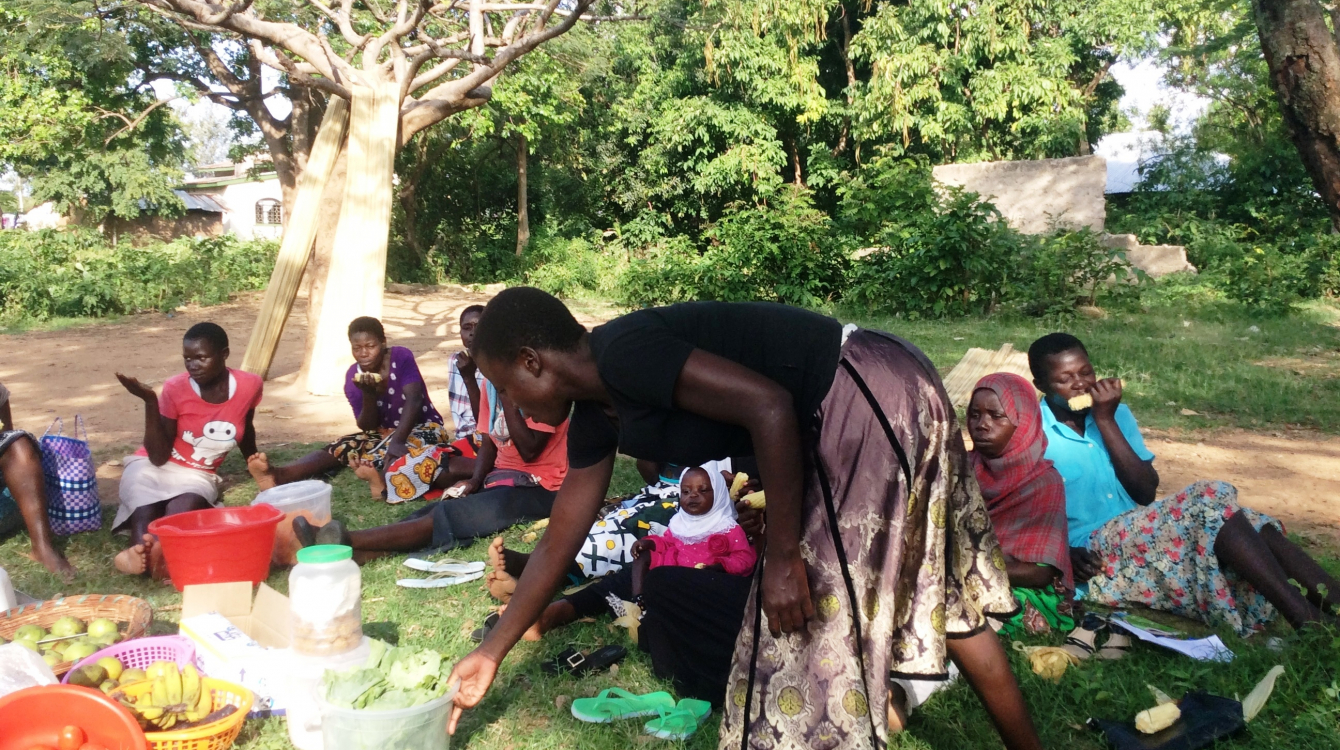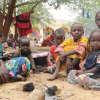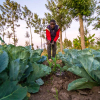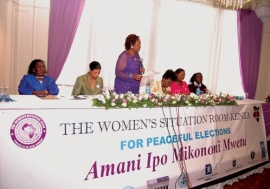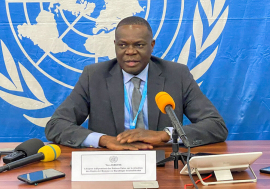Violence against women spike during heated electioneering
Violence against women spike during heated electioneering
Although Kenya has attempted to address rising incidents of violence against women by enacting specific laws and policies, huge challenges have limited the success of these laws and policies. Recent statistics received by the State Department of Gender Affairs are worrying.
Speaking at the national launch of the 16 Days of Activism against Gender-Based Violence in Kiambu County on 25 November, Kenya’s Cabinet Secretary for Public Service Youth and Gender Affairs, Sicily Kariuki, noted that the state of gender-based violence in Kenya is “shocking”.
“Five in every 10 women in Kenya in the age bracket 15-49 (about 47%) have suffered one or another form of violence. About 40% of men within that same age bracket have also been victims of violence,” said Ms. Kariuki.
She added: “According to a survey done by the State Department, five in every 10 women of the age 15-24 believe and accept that men have a right to beat up a woman for one reason or another.” The minister noted that in the last five years, more than 47,000 cases had been reported through the toll-free line ‘1195’ which promises justice for victims.
These numbers have increased since the 2014 Kenya Demographic Health Survey (KDHS), when four in every 10 women in the 15-49 age bracket were victims of violence before their 18th birthday.
Physical, sexual and emotional violence are the most common forms of violence experienced by women in Kenya, according to the survey. Other forms include psychological and economic abuse.
Western Kenya and Nyanza region, as well as the capital Nairobi report the highest levels of physical and sexual abuse committed by spouses.
Among the rural counties, Busia, Kiambu, Machakos, Meru, Nakuru, Samburu and Vihiga, report the most cases of violence against women, according to the National Crime Research Centre in its current report on Gender Based Violence in Kenya.
The report also notes that survivors of violence, mainly women, have been left with serious injuries. Others have died.
As the world marked this year’s International Day for the Elimination of Violence against Women, and the beginning of 16 Days of Activism against Gender-Based Violence that ends on Human Rights Day on 10 December, the UN is calling for definitive action to end the practice around the world.
The international campaign originated from the first Women's Global Leadership Institute coordinated by the Center for Women's Global Leadership in 1991.
This year’s theme, “Leave No One Behind: End Violence against Women and Girls”— reflects the core principle of the transformative 2030 Agenda for Sustainable Development.
In Kenya, the day was marked against a backdrop of a gruelling electioneering period that exposed more women to sexual and physical violence.
The National Gender-Based Violence Network, a coalition of over 20 organisations, has raised concerns, especially over the high number of rapes and other forms of sexual violence perpetrated during the electioneering period.
The network, coordinated by the National Gender and Equality Commission, has written to the Cabinet secretaries for Health and Interior Security, as well as the Inspector General of Police, demanding that action be taken to protect Kenyan women against violence.
The network noted that 60 cases of rape were committed during the first voting period in August 2017.
According to Agnes Odhiambo, a researcher at the Women’s Division of the Human Rights Watch, sexual violence is not new. During the 2007-2008 post-election violence in Kenya, for example, thousands of women were sexually violated although the government never acknowledged it despite the cases being mentioned in the Truth and Justice Reconciliation Commission (TJRC) and Waki Report.
“There was no support to access treatment for survivors of the violence,” says Ms. Odhiambo.
Similar problems have recurred this time and the government has remained silent. “There was no medical treatment for survivors nor were they able to access psycho-social care or counselling. The few who attempted to report only received rude responses from police officers.”
Ms. Odhiambo is challenging the government to put in place strategies to protect women and to take steps to ensure that every case is reported, investigated and perpetrators prosecuted.
On the other hand, the Cabinet secretary in charge of Gender Ms. Kariuki says the government is committed to making Kenya free of violence against women.
In trying to firm up how to deal with violence against women, the government, in a joint initiative with the United Nations in April this year, signed a four-year $11.5 million contract for the prevention and response to gender-based violence.
“Currently the Ministry of Gender is seeking to develop a Policy on Zero Tolerance to Gender Based Violence to curb violence against women. The Policy will be developed within a multi-sectoral framework that will have everyone involved,” said Ms. Kariuki when she visited students of Moi Girls Nairobi who were victims of arson attack.
In Kenya, several laws address violence against women, including; the Matrimonial Causes Act, Sexual Offences Act, Children’s Act, Protection Against Domestic Violence and Prohibition of Female Genital Mutilation – all within the Constitution of Kenya 2010, Penal Code. These are complemented by such policies as the National Policy for Prevention and Response to GBV 2014.
The country has also ratified several international and regional treaties that address the issue of violence against women, including Protocol to the African Charter on Human and People’s Rights on the Rights of Women in Africa, Declaration on the Elimination of Violence Against Women and Convention on the Elimination of Discrimination Against Women (CEDAW) among others.
The establishment of the Gender Based Violence Recovery Centres in all major hospitals is a commendable advance. These follow the pioneer institution that deals with violence - the Gender Violence Recovery Centre of the Nairobi Women’s Hospital - a private institution.
Initiatives by civil society organisations such as the Coalition on Violence Against Women and the Federation of Women Lawyers in Kenya (FIDA) have established gender desks in police stations in the county, with at least two or three officers assigned to cases of violence against women and girls.
“This has been amplified by the establishment of Gender Desks at Huduma Centres (Public service centres) across the country where survivors and victims of violence can report anonymously if in fear,” said Ms. Kariuki.
While visiting a woman who was gang-raped by protesters during election violence in hospital last week, Ms. Kariuki spoke strongly against the attack. She is admitted at Nairobi Women’s Hospital’s Gender Violence Recovery Centre.
"I condemn in the strongest terms this barbaric act and any other forms of gender based violence that happened during the election period," said the Cabinet minister.
And while launching the national campaign on the 16 Days of Activism, she reiterated that “democratic freedom cannot be expressed through violence against women”.
Even though some police stations in Kenya have a gender desk dedicated to handling gender violence, often times investigating these cases is an uphill task because not every police officer fully understands the existing laws on gender-based violence, or the new laws being introduced.
Organisations such as African Woman and Child (AWC), working under a programme of improving community security known as Jamii Thabiti, have been training police officers in charge of gender desks and criminal department on new laws and policies.
“We are training police officers to understand the laws in their simplicity so they can apply them when investigating cases of violence against women,” says Ruth Omukhango, the programme manager at AWC:
She adds: “There are police officers who were never taken through the Sexual Offences Act at the Kenya Police Training College. There are also new laws that have been introduced, such as Protection Against Domestic Violence Act, which they need to familiarise themselves with.”
Some successes
Meanwhile, conversations about breaking the silence on violence against women in the country are gaining a notable success.
While reporting of these cases is not as good as expected, communities are beginning to open up and talk about the problem. Acknowledging that this is a major societal problem is the first step in tackling violence against women.
However, challenges abound and many barriers exist.
Eunice Achieng Omondi, a survivor of violence and a member of Usoma Support Group for Survivors of Violence in the city of Kisumu in Western Kenya says as long as women are financially dependent on men, violence will never end.
“Women are beaten by their husbands on simple actions such as asking for money to buy food or pay school levies for their children. Women must be able to engage in income generating activities to reduce incidences of violence,” Ms Omondi told Africa Renewal.
The Cabinet minister noted that financial empowerment funds have since been put in place to help address, among other things, issues of violence against women. She however, noted that may barriers still hinder the war on violence against women.
She said: “Normalisation of violence has led to silence over the vice, which makes reporting and speaking out a challenge.”
Ms. Kariuki said cultural practices that view certain forms of violence against women as normal practices remain a stumbling block to ending the vice.
Many of the counties in Kenya lack safe houses where victims of violence can seek shelter as they seek justice. Therefore, many of the abused women are forced to return to their abusive husbands.
According to Wangu Kanja, the Executive Director of Wangu Kanja Foundation that works with survivors of violence in Mukuru slums in Nairobi, the numbers are increasing.
The most common forms of violence against women in the country include physical or sexual abuse by a spouse or partner, and cyber violence where women and girls are bullied and threatened through online social media in informal settlements, Ms. Kanja says, there is what is known as Kombi where a girl is raped by several members of a gang.
Also, due to a violent electioneering period in Kenya, there are increasing cases of women being raped, beaten or abused because of their political affiliation or ethnicity.
Ms. Kanja, a survivor of sexual violence who has since gone public says: “We seem to have regressed despite the laws and policies in place because there is no framework for enforcement. The Government does not provide budgetary allocations to stem violence against women and has failed to institute a Gender Crimes Unit for investigation and prosecution of cases.”
Margaret Omondi, the coordinator of Women’s Concerns Centre in Kisumu who works with survivors of violence says challenges abound. “Access to justice is still an issue because medical examination is inadequate at the facility level. During investigations on rape and defilement, a victim will be given the emergency pill [contraception] after testing negative for pregnancy but later turns out to be pregnant.”
She says justice for the victim fails because of the legal procedures that must be followed. “If a survivor goes to a health centre she will be examined by a clinical officer who, legally, cannot give evidence in court. The P3 and the Post Rape Care (PRC) forms, in which evidence is generated, can only be signed in by a Medical Officer of Health, who must be a doctor,” she says. This is despite the fact that many rural health facilities and those poor neighbourhoods are run by clinical officers, not doctors.
“Where a clinician is the first point of contact for the survivor, the P3 and PRC forms becomes a challenge and this hinders justice because a perpetrator who is knowledgeable on legal requirements will question who saw the victim first, and if this was a clinical officer, he or she cannot come to court to give evidence,” explains Ms. Omondi.
She laments the lack of proper data collection tools. “We do not get statistics because we lack tools to capture data on violence. The referral pathway can only work well when we have data tools that all partners use and can be accountable for.”
In its report on the Cost of Gender Based Violence in Kenya, the country’s National Gender and Equality Commission notes that most Gender Based Violence Recovery Centres face the challenge of unreliable supplies of essential materials and medicine. In Kenya, a victim of sexual violence must be able to get DNA collected to enable prosecution to take place. She must also be given the emergency pill to prevent pregnancy and must be put on Pre-Exposure Prophylaxis (PrEP) to lower chances of contracting HIV.
“Gaps that need to be addressed include how to deal with sexual violence under emergency situations. How does a woman who has been violated safely leave home and get to a major government referral facility?” asks Ms. Odhiambo.
Ms. Kanja agrees, saying: “There is a huge lack of proper coordination among organisations that handle cases of violence against women.”
To effectively address the crisis, conversations on how to deal with cases of physical and sexual violence against women in Kenya need to take place as a matter of urgency by all stakeholders.



